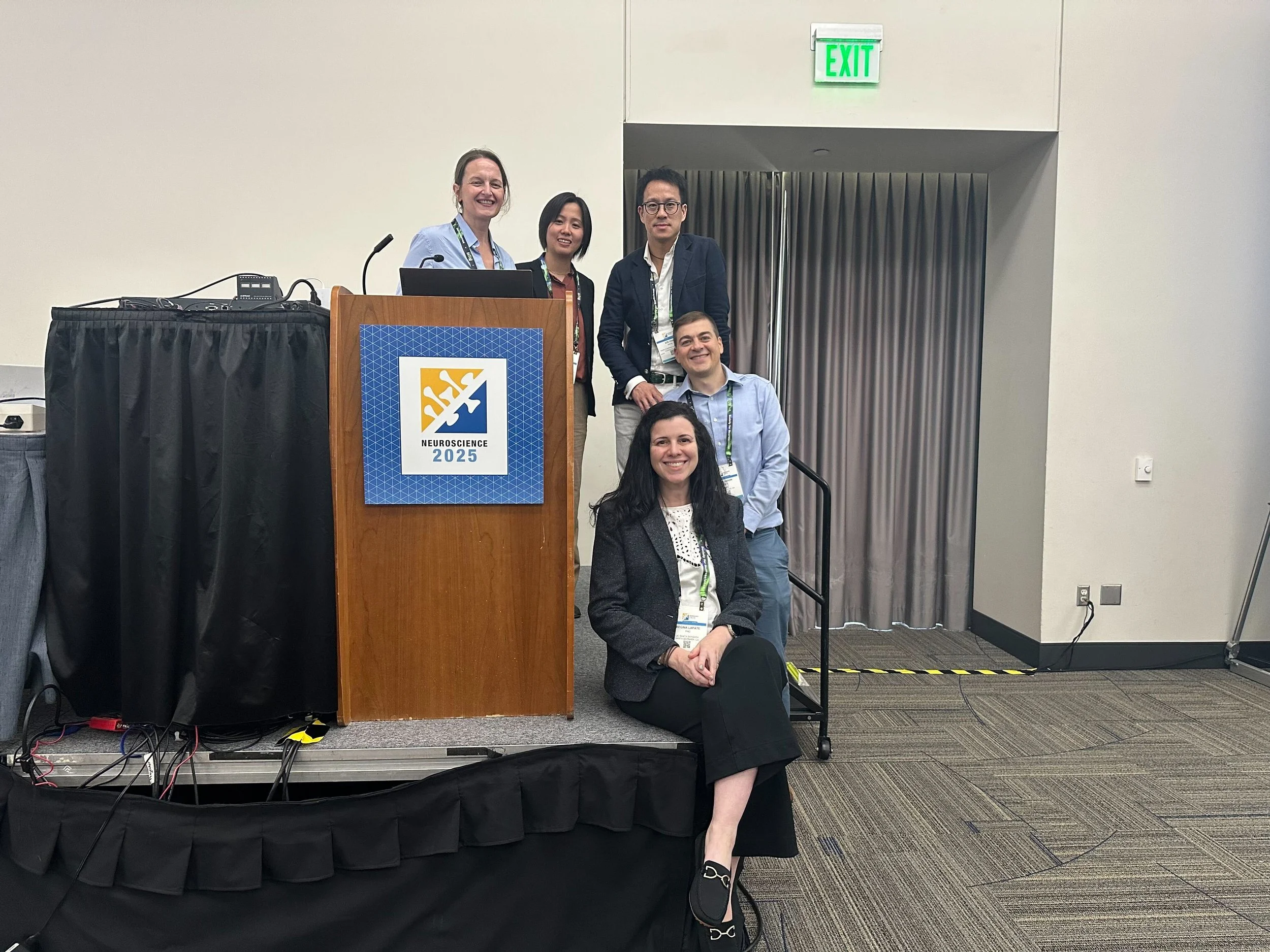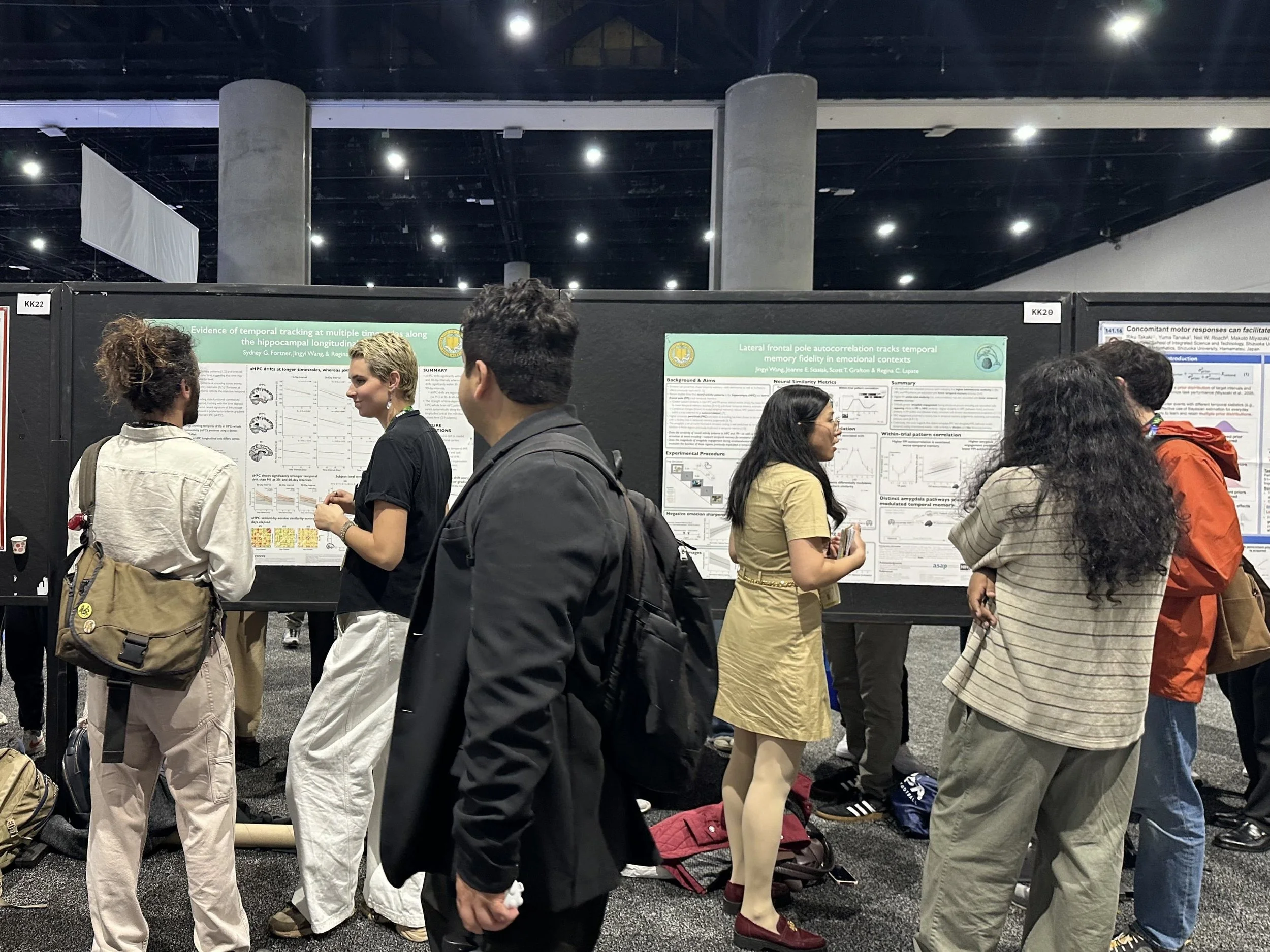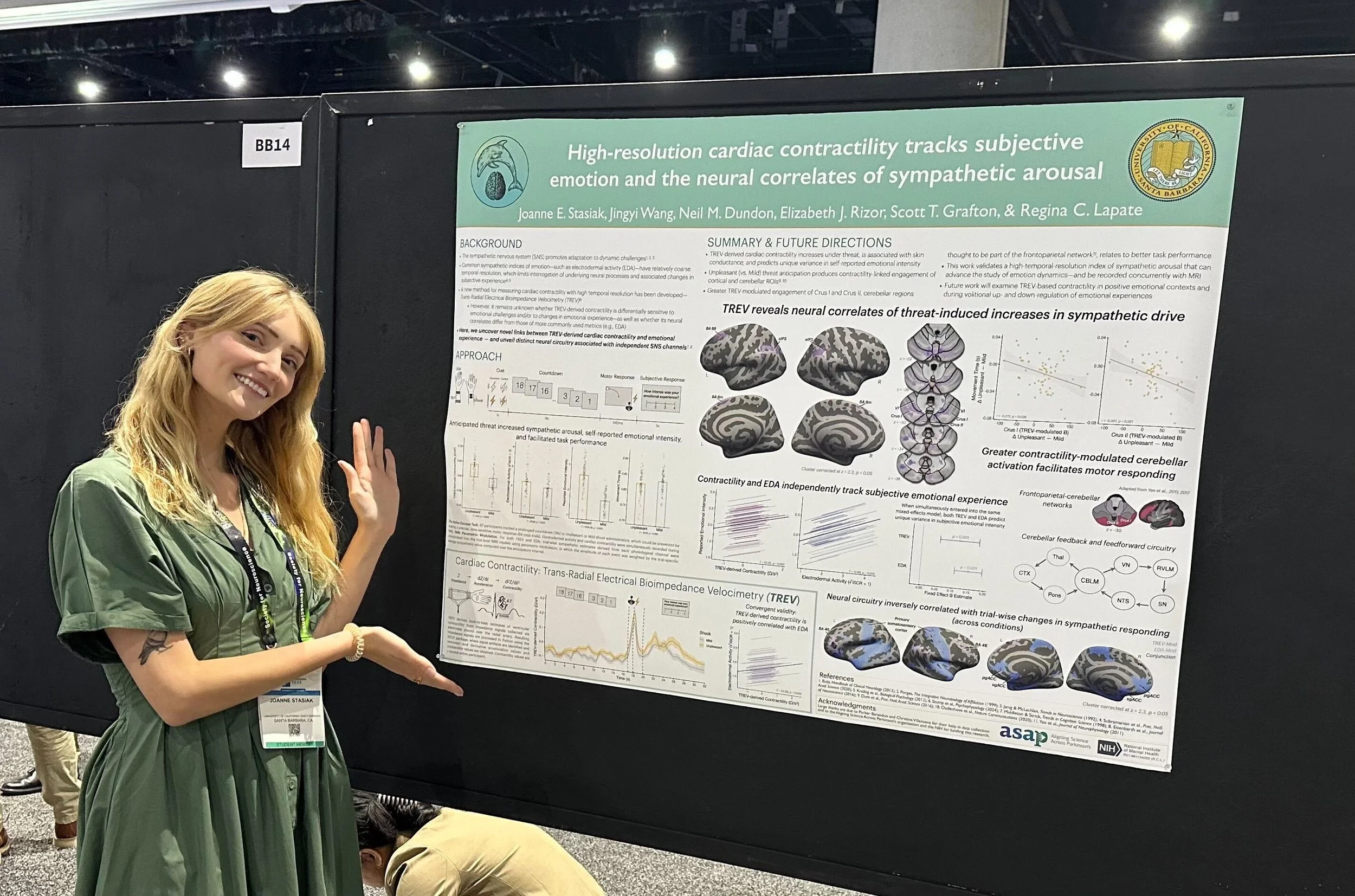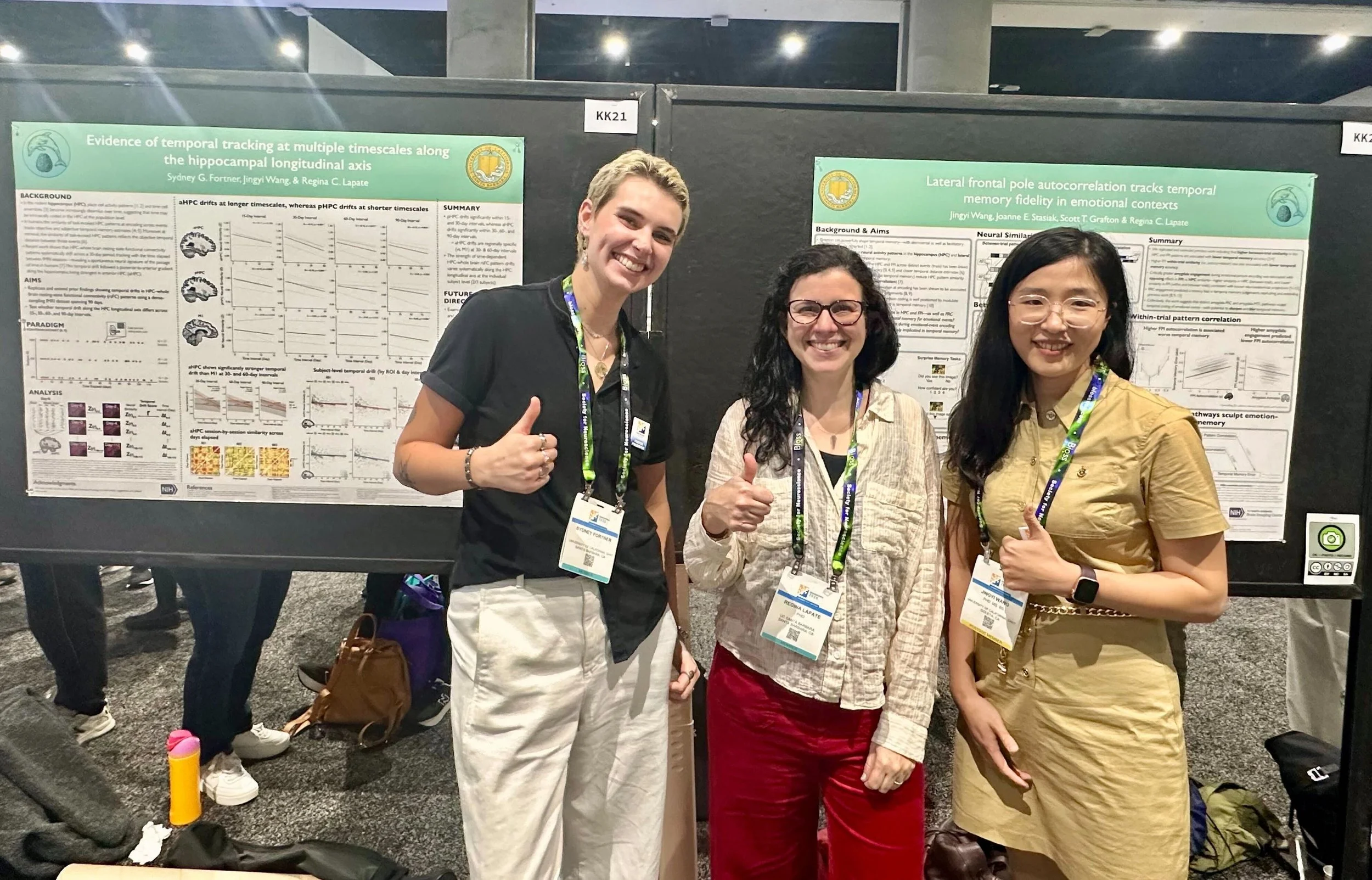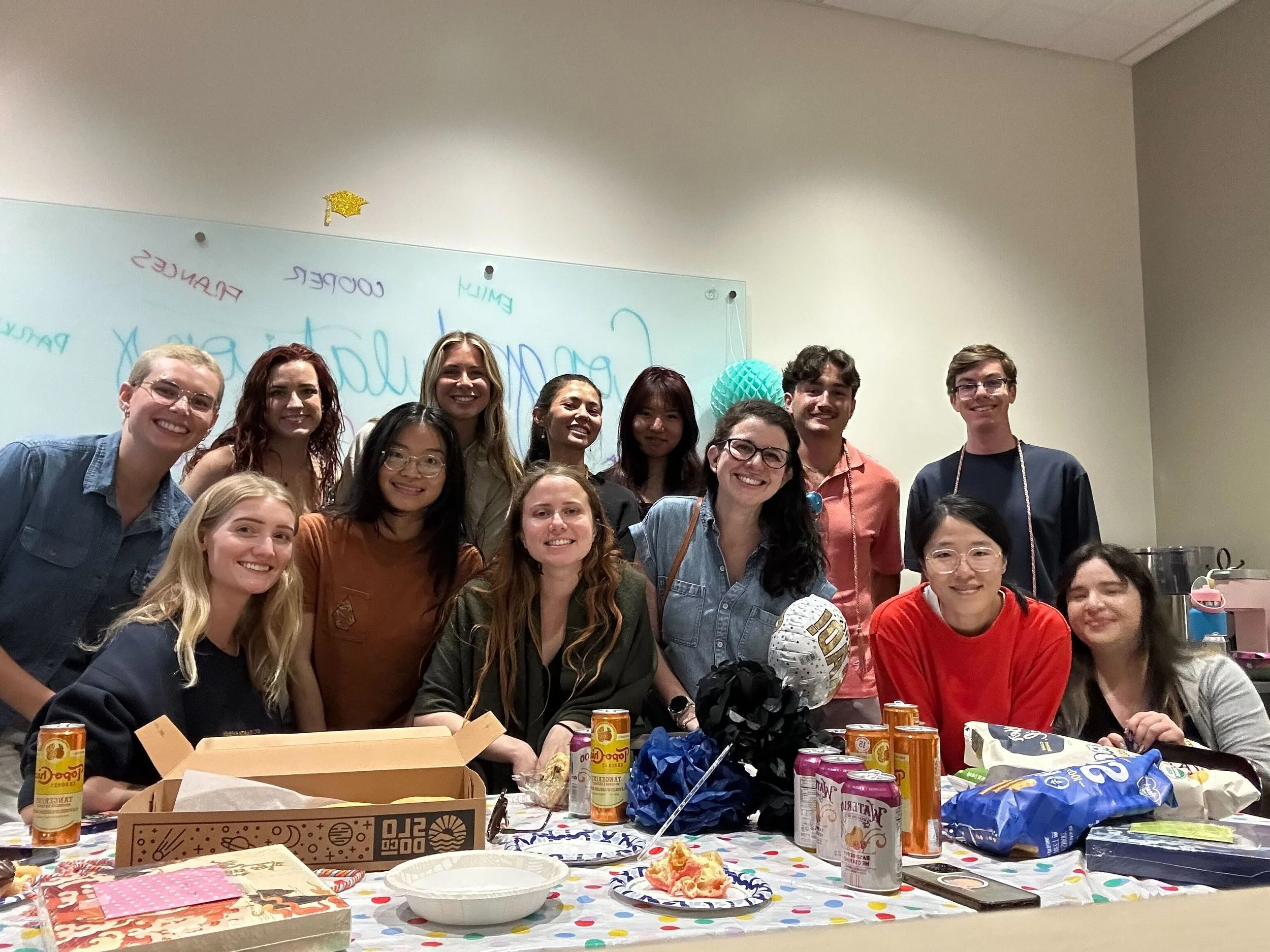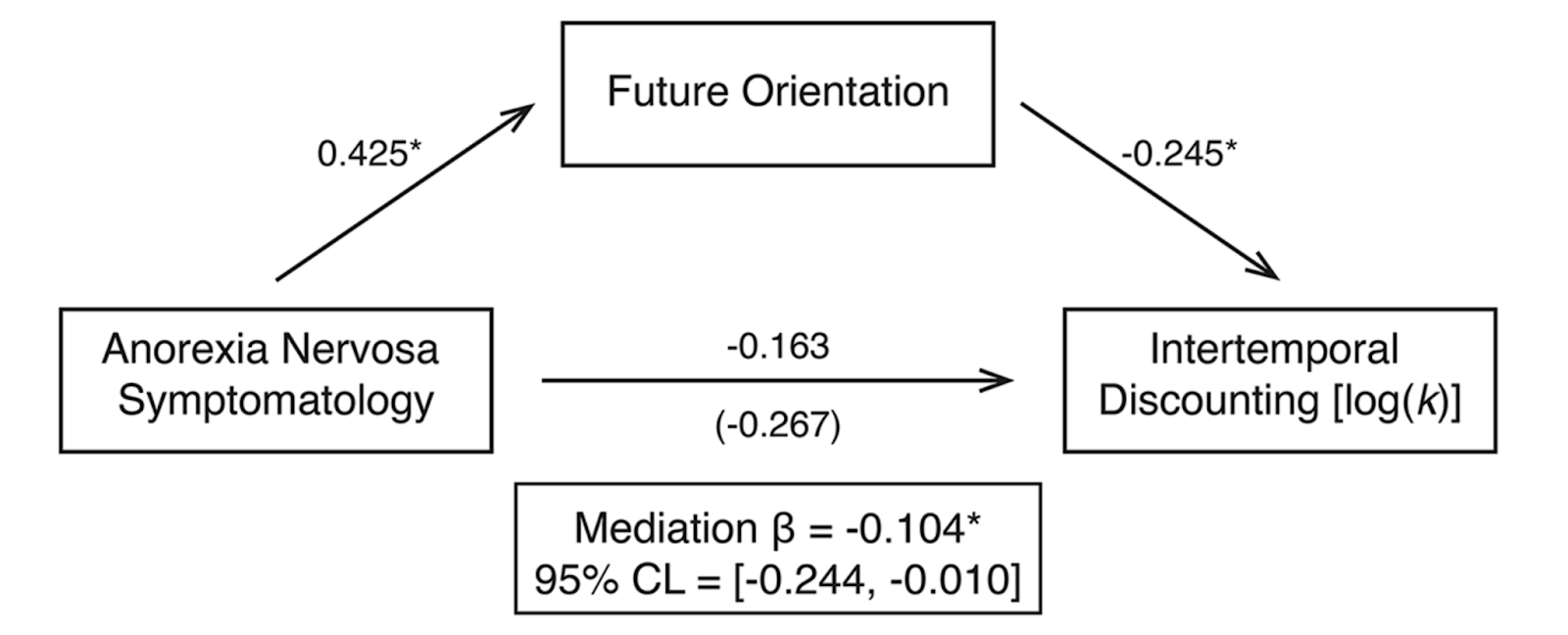Dr. Lapate gave an invited talk titled “Memory for time and emotion: Reciprocal interactions and neural mechanisms” in the minisymposium “Representation of Time in the Brain” alongside speakers Virginie van Wassenhove, John J. Sakon, Gui Xue, Jie Zheng, and chairman Sze Chai Kwok at the Society for Neuroscience annual meeting in San Diego, CA.
The speakers have also co-authored a new review in the Journal of Neuroscience titled “Neural Representation of Episodic Time.”
